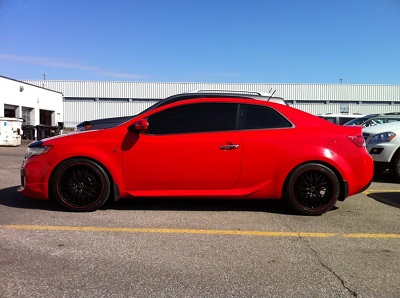Window tinting is always in trend among young drivers, but can reduce visibility and ultimately increase the likelihood of an accident. Dirty windows and winter sun can make the going even more dangerous.
While Massachusetts does have some window tinting laws, custom tint is not illegal. Car owners, including parents, should be aware of the dangers of window tinting and drivers should remember that others on the road may not have full visibility. For most vehicles, window tinting that registers 35% on a tint meter is acceptable under Massachusetts law.

Certain trends on vehicles can be dangerous, even deadly. Window tinting has been known to cause accidents and to conceal criminals when committing crimes. Our Boston car accident attorneys are experienced with representing the rights of our clients who have been injured or involved in an accident. We are dedicated to uncovering the cause of accidents, including negligence, defects, and other dangerous driver behavior.
Window tinting laws vary by state, however all states have some law about the visibility requirement in the vehicle. In addition to preventing accidents, states see window tint as a threat to police officers who cannot see inside when they approach a window. Despite even the toughest window tinting laws, many states have found it hard to completely enforce the requirements and keep drivers with illegal tint off the street.
Drivers should remember that in addition to state tinting laws, there are also federal laws that limit the ability to tint windows. You can get a ticket in one state but perhaps not another. The National Highway Traffic Safety Administration also has window tinting rules which is followed by auto manufacturers. There are two types of window tints: one reflects light so that those on the outside cannot look in, and the other absorbs light so that less light enters the vehicle.
National safety tips promoted by the federal government say tint must allow 70% percent of visible light into the interior. This is usually the light standard for cars with untinted windows on the side windows. The front and rear-windows do have different standards. According to some critics of these safety standards, front, rear, and side windows should all have the same tinting standards. In addition to promoting police safety, having full peripheral vision can prevent accidents. Due to the inconsistency in the laws, many car manufacturers let only 20% of the light in for the rear and back windows.
Window tinting could be considered comparable to many distractions on the road, including loud music, pets, eating, using a cell phone, or other in-vehicle interruptions that prevent drivers from focusing on the road. When behind the wheel in a tinted car, drivers may not be able to see what is going on with full periphery vision. Similarly, other drivers cannot see in the vehicle in the event of an emergency.
If you purchase a vehicle from an auto dealer, the windows must meet state standards. For more information about window tinting, you can go to www.massrmv.com. Remember that all vehicles must also be inspected and your car, van, or truck could be rejected if it violates Massachusetts tinting standards.
If you were involved in a Boston car accident, contact Jeffrey S. Glassman for a free and confidential appointment to discuss your rights. Call (617) 777-7777.
More Blog Entries:
Passengers Have Complaints About High-Risk Driving Behaviors, Boston Car Accident Lawyer Blog, December 10, 2013
NHTSA’s Delay on Backover Accident Prevention Causes Concern, Boston Car Accident Lawyer Blog, December 3, 2013
 Boston Car Accident Lawyer Blog
Boston Car Accident Lawyer Blog

